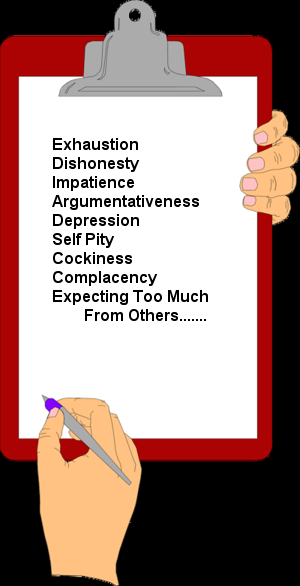Carrying the Burdens of Your Past?
We’re commanded in Hebrews 12:1 to “lay aside every weight” so we can “run with patience the race that is set before us.” Consider that first command: lay aside every weight, every burden that slows us down in our race forward. If we’re dwelling on the past, that means we’ve stopped running, picked up some weights we were commanded to drop, and are giving them (not God or His commandments and His service) all our attention. No wonder we stop running and even start walking backward. For good reason do race horses wear blinders that force them to look forward, blocking out distractions so they can focus on the race.

Even worse, Hebrews 12:1 continues on into the second verse, explaining what we should be looking at when we run the race “set before us” (set in front of us): “Looking unto Jesus the author and finisher ofour faith.” If we’re looking at the past, we’re violating this second command of God’s: we’re not only picking up weights and burdens we were told to lay aside, to drop to the ground and regard as worthless impediments, but we’re not looking at Jesus but rather at those forbidden weights instead. We should be rejoicing that Christ tells us to drop all these weights. Satan’s worst enemy is a Christian focused on the future and running his race well.
Carrying the Burdens of Your Past? Read More »



 eating disorder odyssey, recovery included, in my book,
eating disorder odyssey, recovery included, in my book, 




